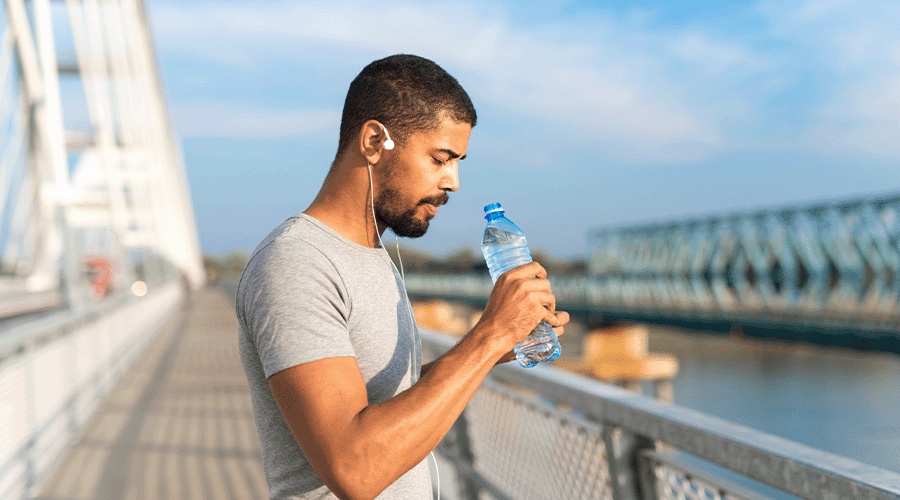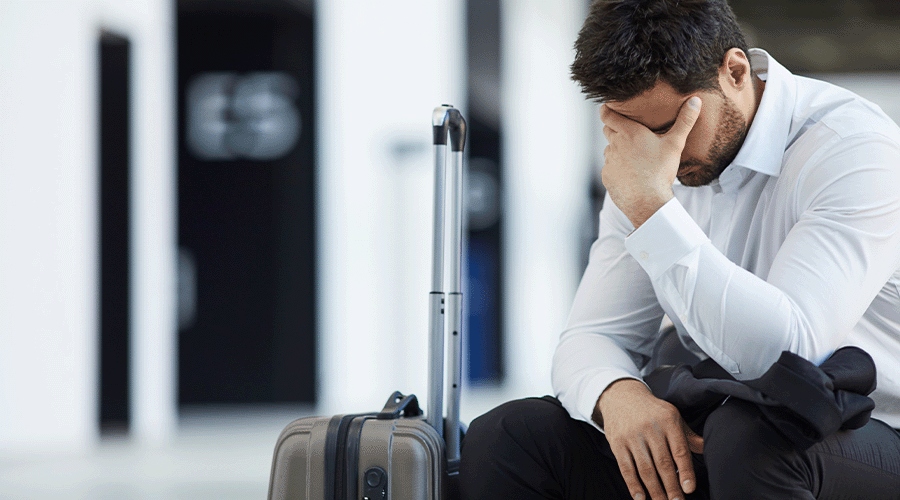Traveling as an athlete, whether for competitions, training camps, or leisure, presents unique challenges when it comes to maintaining proper nutrition and performance. The change in routine, unfamiliar food options, and different time zones can disrupt an athlete's dietary habits.
However, with careful planning and a flexible approach, athletes can continue to meet their nutritional needs while on the road. In this comprehensive guide, we will explore the key considerations, strategies, and tips for nutrition to support traveling athletes, ensuring they can perform at their best and maintain their overall health.
Importance Of Nutrition For Traveling Athletes
Proper nutrition is of utmost importance for traveling athletes for several reasons:
- Sustained Performance: Athletes require consistent energy and nutrients to perform at their best. Traveling can disrupt regular meal patterns, leading to energy dips and potential decreases in performance.
- Optimal Recovery: Nutrition plays a significant role in the recovery process. Inadequate nutrient intake during travel can hinder muscle repair and recovery after intense workouts or competitions.
- Hydration: Changes in climate and activity levels during travel can increase the risk of dehydration. Adequate hydration is crucial for maintaining performance and overall well-being.
- Immune Function: Travel often exposes athletes to new environments and potential stressors, increasing the risk of illness. Proper nutrition supports a robust immune system, reducing the likelihood of falling ill.
- Adaptation: Different locations may offer different food options and culinary practices. Athletes need to understand how to adapt and make the best nutritional choices available in their travel destination.
Nutrition Strategies For Traveling Athletes
To ensure that your nutrition aligns with your athletic performance while on the road, consider the following strategies:
Plan Ahead
Effective preparation is key to maintaining proper nutrition while traveling. Here are some important tips to help you plan your nutrition in advance:

- Research Your Destination: Prior to your trip, take some time to research your destination. Learn about the local cuisine, available restaurants, and grocery stores in the area. This knowledge can help you identify suitable food options.
- Pack Essentials: If feasible, pack non-perishable, nutrient-dense snacks that are easy to carry. These can serve as emergency provisions when you encounter limited healthy food options.
- Create a Meal Plan: Outline your meal schedule and preferred food choices for the duration of your trip. Having a basic meal plan can help you make informed decisions about your dietary choices.
Stay Hydrated
Traveling, particularly by air, can lead to dehydration due to the dry cabin air. When traveling to warmer climates, there's also an increased risk of fluid loss. Consider these hydration tips:

- Carry a Reusable Water Bottle: Having a reusable water bottle with you makes it convenient to stay hydrated throughout the day.
- Limit Caffeine and Alcohol: Both caffeine and alcohol can contribute to dehydration. Consume them in moderation, and balance their intake with water.
- Consume Hydrating Foods: Incorporate water-rich foods like fruits and vegetables into your diet to support hydration.
Balance Macronutrients
Even when traveling, it's important to aim for a balanced intake of carbohydrates, proteins, and fats to maintain energy levels:

- Carbohydrates: Include complex carbohydrates like whole grains, fruits, and vegetables in your meals to provide a steady source of energy.
- Proteins: Prioritize lean protein sources such as chicken, fish, lean meats, and plant-based options to support muscle repair and recovery.
- Fats: Healthy fats from sources like avocados, nuts, and olive oil can provide energy during travel.
Portion Control
Be mindful of portion sizes, especially when dining out. Many restaurants serve large portions, which can lead to overeating. Consider the following portion control strategies:

- Share Meals: To avoid overconsumption, consider splitting larger meals with a travel companion.
- Order Appetizers or Half Portions: Many restaurants offer smaller dishes or appetizers, which can be a great way to manage portion sizes.
- Use Visual Cues: Learn to estimate appropriate portion sizes using visual cues such as your hand or common objects.
Snack Smart
Healthy, portable snacks are essential for maintaining energy levels while traveling. Choose nutritious options that are easy to carry:

- Nuts and Seeds: Nuts and seeds are nutrient-dense and convenient for on-the-go snacking.
- Greek Yogurt: If available, Greek yogurt is a protein-rich and portable snack.
- Fruits: Apples, bananas, and dried fruits are easy-to-pack options.
- Protein Bars: Look for protein bars with a balanced macronutrient profile and limited added sugars.
- Nut Butter Packets: Single-serving nut butter packets pair well with fruit or whole-grain crackers.
Navigate Restaurant Menus
When dining out, consider these strategies to make healthier choices:

- Look for Balanced Options: Choose dishes that contain a balance of carbohydrates, proteins, and fats to ensure you're getting a well-rounded meal.
- Practice Mindful Eating: Pay attention to your hunger and fullness cues. Stop eating when you're satisfied, not when the plate is empty.
- Limit Alcohol Consumption: Alcohol can add empty calories and reduce inhibitions, potentially leading to poor food choices. Consume alcohol in moderation.
Adapt to Local Cuisine
Exploring the local cuisine is one of the pleasures of traveling. To enjoy local foods while maintaining your nutrition:

- Sample Local Ingredients: Experiment with local fruits, vegetables, and proteins to experience the regional flavors.
- Choose Healthier Preparations: When in doubt, opt for grilled or steamed dishes, as they tend to be lighter and healthier.
- Practice Moderation: It's perfectly fine to indulge in local specialties in moderation. This way, you can savor the experience without overindulging.
Post-Workout Nutrition
If you plan to exercise while traveling, it's important to consider post-workout nutrition. After your workouts, focus on the following:

- Replenish Carbohydrates: Consume carbohydrates to replenish glycogen stores in your muscles and liver.
- Include Protein: Protein is crucial for muscle recovery and repair. Include a source of protein in your post-workout meal or snack.
- Hydrate: Rehydrate with water or an electrolyte drink to replace fluids lost during your workout.
Manage Jet Lag
Traveling across multiple time zones can disrupt your body's internal clock and affect your meal schedule. To manage jet lag and align your nutrition with your destination's time zone:

- Gradual Adjustment: Gradually shift your meal times to align with the local time at your destination.
- Stay Hydrated: Dehydration can worsen the effects of jet lag. Prioritize hydration to help combat this common travel woe.
- Avoid Heavy Meals Before Bed: Steer clear of large, heavy meals immediately before bedtime, as they can disrupt your sleep patterns.
Listen to Your Body
Pay close attention to your body's cues, such as hunger, fullness, and fatigue. Adapt your meal plan and activity level accordingly. If you're feeling tired, consider prioritizing rest and recovery.
Travel-Specific Considerations
Certain travel situations may require additional attention to nutrition:
- Air Travel: Cabin air can be dehydrating. Be sure to drink water regularly, and limit salty snacks, as they can exacerbate dehydration.
- Long Layovers: If you have extended layovers, seek out healthier food options in the airport terminal to fuel your body while waiting for your connecting flight.
- Time Zone Changes: When traveling across multiple time zones, gradually adapt your meal schedule to the local time at your destination.
- Limited Food Options: In remote areas or during outdoor adventures, you may have limited food options. Plan ahead and carry nutrient-dense snacks and energy bars to ensure you have suitable sustenance.
Conclusion
Nutrition is a critical component of an athlete's performance, and it becomes even more crucial when traveling. With thoughtful planning, If you have specific dietary needs, restrictions, or concerns while traveling, consulting with a registered dietitian with expertise in sports nutrition is highly recommended. A dietitian can provide you with tailored advice and guidance for your unique situation, helping you make the best nutritional choices while on the road. Remember that with preparation and mindfulness, you can have a successful and enjoyable travel experience while still meeting your athletic and nutritional goals.










